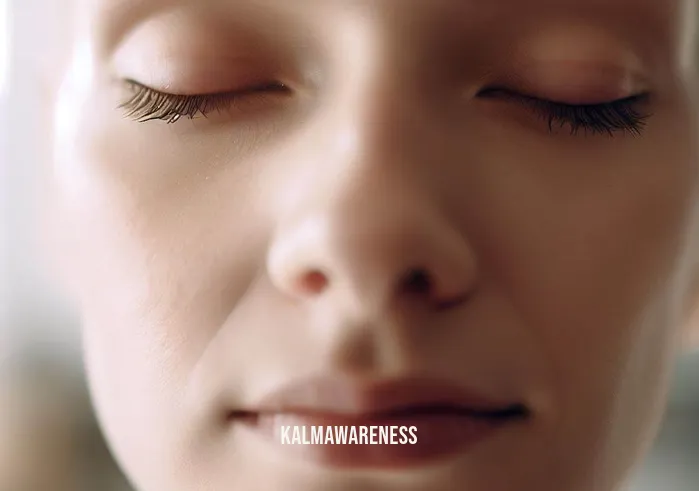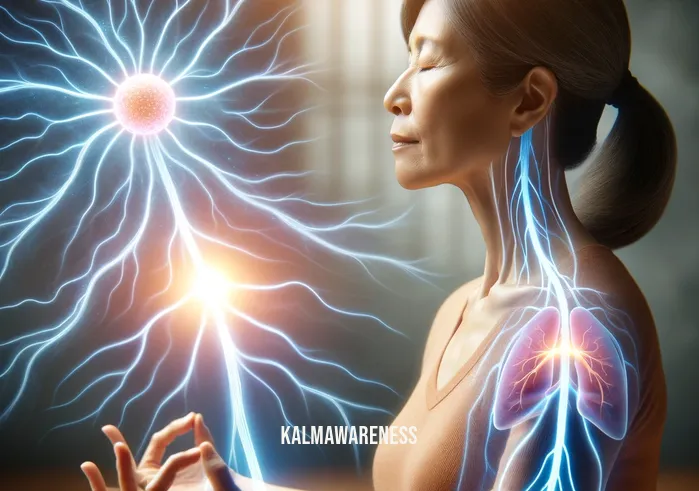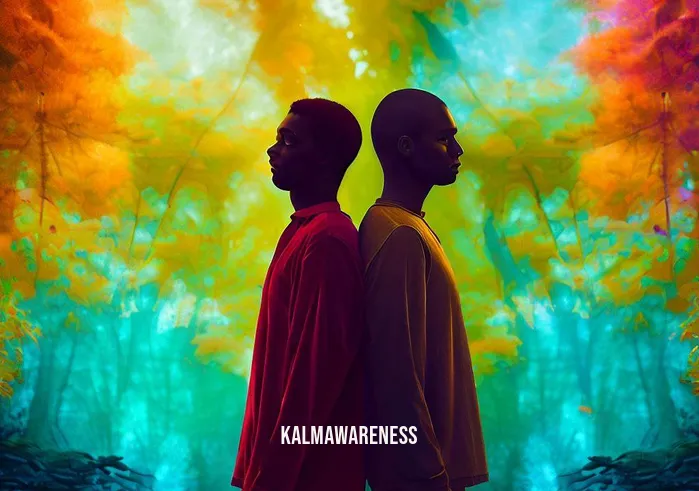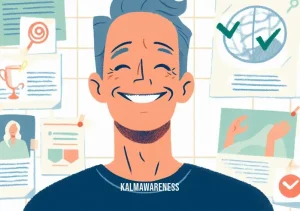How Do You Feel After Meditation: A Journey of Awareness and Clarity
Meditation, an ancient practice rooted in mindfulness and self-awareness, has the potential to bring about profound inner changes. But what exactly happens after a session? How do you feel after meditation? In this article, we delve deep into the feelings, insights, and transformations that ensue.
The Immediate Calmness
Almost immediately, as you draw your meditation session to a close, there’s a prevailing sensation of calmness. This is akin to attaining a peaceful state of mind where thoughts are unoccupied by worry. Your heartbeat slows, and a certain lightness engulfs you.
Physical Changes
Not many realize, but meditation also has a physiological aspect. For instance, some prefer to meditate lying down to feel more in tune with their body. When you focus on your breathing, a vital element in many meditation exercises, you often notice a relaxation of muscles, a decrease in tension, and sometimes even a change in body temperature.
“Meditation is not just about the mind; it’s about being in touch with our entire being.”
Connection with the Heart
The Heart Center, as many traditions label it, is the core of our emotions, our compassion, our sense of love and connection. Post meditation, you often feel a strong alignment with the Loving-Kindness you possess. This connection, with consistent practice, will lead you to understand the importance of sustainable self-care.
Chakra Alignment
If you’ve dived deep into the realm of meditation, you’ll be aware of Chakras – energy centers in our body. Each session can often feel like a cleansing ritual, aligning these chakras and bringing about balance. The feelings post-meditation could range from groundedness (root chakra) to heightened intuition (third eye chakra).
Insights and Revelations
Often, after a meditation session, you’ll find that you have heightened clarity. This could manifest as an insight into a problem you’ve been pondering or even the judgment of the wise in dealing with a challenging situation.
The Ripple Effect in Daily Life
The sensations and understandings post meditation don’t just end there. They ripple into your everyday life. You might find it easier to approach challenges, be it teenagers walking into the complexities of life or understanding intricate concepts like how to stabilize your emotions.
- Mirror Gazing: Some practitioners also engage in practices like mirror gazing for spiritual benefits, enhancing self-awareness post meditation.
- Deepening Practices: As your journey progresses, you’ll find there’s always more to explore. For instance, practices like mindful hypnobirthing might become a path you wish to tread.
“Every meditation session is a journey, and every journey brings its own stories and lessons.”
Final Thoughts
As you reflect upon your meditation journey, remember it’s a personal path. What you feel might be different from another, yet it’s all valid. Whether you’re a beginner just dipping your toes, with resources like Jack Kornfield’s guide for beginners, or a seasoned practitioner, the journey of understanding “how do you feel after meditation” is ever-evolving.
We invite you to continue to the next part of the article, where we’ll delve deeper into the long-term impacts of meditation on your mind and body and further explore the intricacies of mindfulness practices.
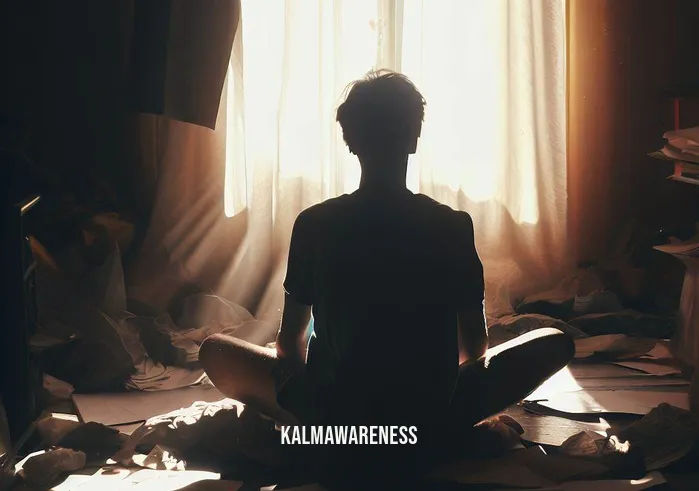
The Extended Benefits of Meditation: What’s Beyond the Immediate Calm
While the immediate calmness post-meditation is undeniably soothing, the benefits of this mindfulness practice extend far beyond that. So, when pondering the question, “how do you feel after meditation?”, it’s essential to understand the holistic benefits it offers, both mentally and physically.
Enhanced Cognitive Abilities
One of the significant advantages of consistent meditation practice is improved cognitive functions. This means:
- Enhanced Focus: With tools like mindful movement sleep, you nurture your ability to concentrate on tasks without getting easily distracted.
- Better Memory: Meditation aids in memory retention and recollection.
- Creative Boost: Post meditation, individuals often report feeling more creatively charged, attributing to insights derived from their mindful sessions.
Improved Emotional Health
Meditation isn’t merely a cognitive enhancer. It plays a pivotal role in fostering emotional well-being:
- Elevated Mood: By calming the mind, meditation can aid in reducing feelings of anxiety and depression.
- Enhanced Self-Awareness: Tools such as touch that body part exercises help you connect deeper with your emotions.
- Greater Empathy: Meditation focusing on Loving-Kindness and Compassion fosters a more profound connection with others.
The Physical Perks
While meditation is fundamentally a mental exercise, the body reaps its rewards:
- Stress Reduction: Regular meditation can lower cortisol levels, the stress hormone.
- Better Sleep: Practices like gratitude meditation sleep can lead to a deeper and more restful sleep.
- Reduced Blood Pressure: The relaxation that comes with meditation can lead to lower blood pressure, a key to heart health.
Now, for a more structured breakdown, here’s a table capturing the essence of meditation’s benefits:
| Aspect | Benefit | Recommended Read |
|---|---|---|
| Cognitive | Boost in Creativity | How We Get Deep So Fast |
| Emotional | Enhancement in Self-Awareness | Train Your Mind to Be Stronger than Your Feelings |
| Physical | Lowering of Blood Pressure | Rouse Yoga’s Influence |
| Spiritual | Deeper Understanding of One’s Purpose | One for Each Blessed Day |
| Social | Greater Empathy & Understanding towards others | Element of Social Meditation Exercises |
In Conclusion
As we delve deeper into understanding the myriad benefits of meditation, it’s clear that the practice influences numerous facets of our being. While the immediate sense of calm is gratifying, the extended benefits contribute to overall wellness and enhanced life quality.
So, the next time someone asks, “how do you feel after meditation?”, you have a comprehensive list to share, highlighting its encompassing influence.
We invite you to the next part of the article where we will discuss integrating meditation into daily routines, the various styles of meditation, and tips to enhance your meditative experiences.
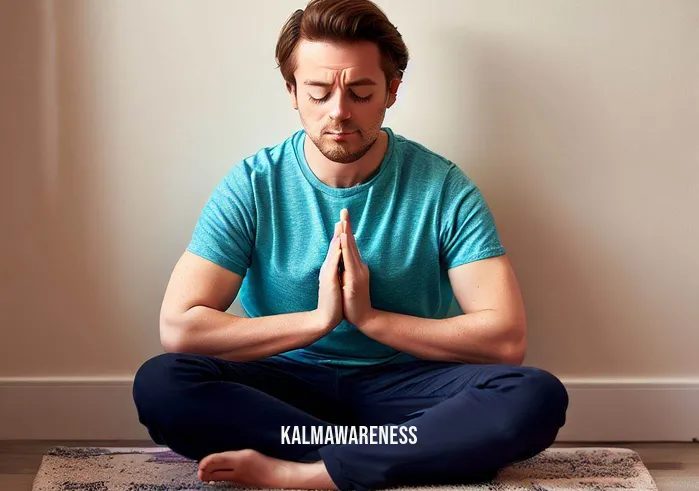
Integrating Meditation into Everyday Life: Steps for Holistic Well-being
The recurring question, “how do you feel after meditation?”, often stems from curiosity about its profound effects. The true magic unfolds when meditation is seamlessly woven into daily routines. By embracing this practice, not only do we benefit individually, but we can also create ripples of positivity and hope in our surroundings.
The Morning Start
Waking up can be more than just dragging oneself out of bed. By dedicating the first few moments to meditation, we set a positive tone. There’s a saying that encapsulates this beautifully:
“The morning breeze has secrets to tell you. Do not go back to sleep.” – Rumi
This suggests that the early hours, when the world is still, can be a goldmine for introspection and connection. Reading through how to incorporate mindful movement into sleep routines, can further assist in jump-starting the day with clarity.
Daily Tasks as Meditation
Meditation doesn’t always require dedicated time or a specific posture. It’s about mindfulness. Whether it’s walking, which can be understood better from teenagers walking, or other daily activities, one can be in a meditative state.
Mahatma Gandhi once said:
“Whatever you do may seem insignificant, but it’s most important that you do it.”
The essence is to be present. Whether you’re washing dishes, driving, or even working, being mindful makes it a form of meditation.
Evening Wind Down
The evening offers another opportunity. By dedicating a few minutes to reflect and meditate, we can process the day’s events. This paves the way for better sleep and, as highlighted in gratitude meditation for sleep, can foster a sense of thankfulness for the day’s experiences.
The wise words of Lao Tzu resonate well with this:
“Simplicity, patience, compassion. These three are your greatest treasures.”
Navigating Challenges
Life isn’t always smooth. In challenging times, instead of succumbing to stress, meditation can be the anchor. By understanding techniques from resources like how we manage to delve deep so quickly, one can find solace.
Martin Luther King Jr.’s words offer a beacon of hope:
“Darkness cannot drive out darkness; only light can do that. Hate cannot drive out hate; only love can do that.”
In essence, meditation can be that light, guiding us through the darkest tunnels.
Social Interactions
Meditation’s influence extends to our social interactions. By being present, listening, and showing compassion, every interaction becomes more meaningful. And as you dive into the elements of social meditation exercises, it becomes evident how powerful collective mindfulness can be.
Dalai Lama wisely points out:
“Compassion is the radicalism of our time.”
To practice compassion, understanding, and empathy is truly revolutionary, especially in today’s fragmented world.
Conclusion
To truly comprehend the answer to “how do you feel after meditation?”, one needs to integrate it into everyday life. Through consistent practice, meditation becomes less of an ‘activity’ and more of a ‘state of being’. It’s the gentle undercurrent that nourishes, heals, and guides.
We invite you to the next segment of the article where we explore advanced meditation techniques, bust common myths surrounding the practice, and share inspirational stories of transformation through meditation.
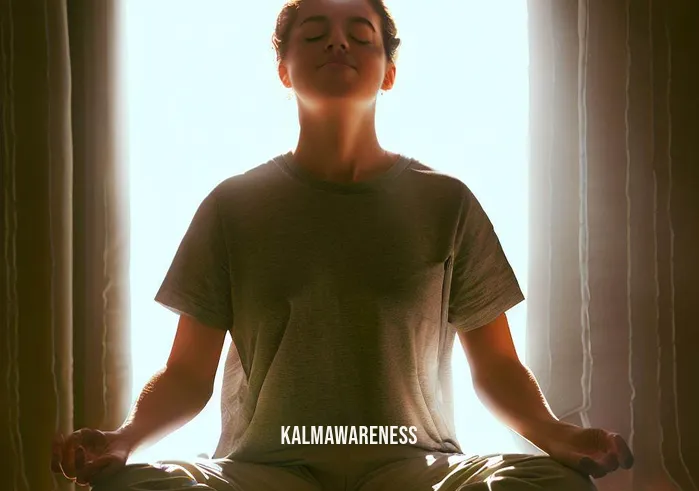
Advanced Techniques and Busting Meditation Myths
When people discuss the feelings associated with meditation, especially with the question, “how do you feel after meditation?”, the spectrum of experiences is vast. As one dives deeper into meditation’s ocean, the advanced techniques unearthed offer transformative experiences. However, as with any practice that delves into the human psyche, there are myths that need debunking.
Advanced Meditation Techniques
Progressive Visualization: A step ahead of basic visualization, here one takes a journey through varying mental scenarios, aiding deeper relaxation. Jack Kornfield’s guide is an excellent resource for those starting out.
Chakra Balancing: Aligning and energizing the body’s energy centers. This technique often integrates with the principles of the Heart Center, Loving-Kindness, and Compassion, fostering holistic well-being.
Mirror Gazing: An introspective technique where one gazes into their reflection, aiming to transcend the physical self. The spiritual benefits of this can be profoundly transformative.
Dynamic Meditation: Involving physical activity like dancing or jumping, it’s a fusion of movement and mindfulness. It’s a technique that proves you can meditate while lying down or even when moving vigorously.
Busting Meditation Myths
Myth 1: “Meditation requires emptying the mind completely.”
- Fact: Meditation isn’t about creating a void. It’s about fostering awareness. As you delve into mindful hypnobirthing, for instance, the focus is on the present moment and bodily sensations, not the absence of thoughts.
Myth 2: “Only specific postures are suitable for meditation.”
- Fact: While traditional postures have their benefits, the key lies in comfort. Whether it’s sitting cross-legged, lying down, or even walking, what matters is mindfulness.
Myth 3: “Meditation is a religious practice.”
- Fact: While rooted in religious traditions, meditation in itself is secular. It’s a tool for mental clarity, self-awareness, and peace. The judgement of the wise often highlights the universality of meditation.
Myth 4: “More extended meditation sessions yield better results.”
- Fact: It’s about quality, not quantity. Even short bursts of mindfulness, as seen in sustainable self-care practices, can be incredibly beneficial.
Conclusion
Meditation, in its essence, is an ever-evolving journey. From the basic techniques to advanced practices, each stage offers insights into our psyche, emotions, and the universe. When you repeatedly ask, “how do you feel after meditation?”, the answers evolve, mirroring personal growth.
In the next segment of our comprehensive guide, we’ll dive into the historical origins of meditation, its cultural significance across the globe, and how modern science is now echoing what ancient seers have said for millennia.
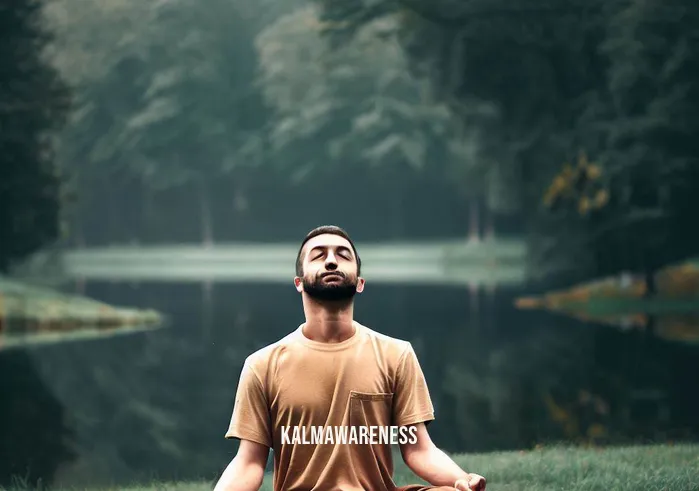
Journey’s End: The Gift of Understanding
As our enlightening journey through understanding the intricate layers of “how do you feel after meditation?” winds down, it’s time to take a breather and soak in the wisdom we’ve accumulated. Meditation, as we’ve explored, is not just an act—it’s a lifestyle, an exploration of self, and a tool to sync with the universe.
One might wonder why understanding our post-meditative feelings is crucial. The nuances of this experience, linked with mindful movement and sleep, shed light on the deeper realms of consciousness. When diving deep within oneself, the mind’s reactions can differ based on numerous factors: our current emotional state, the environment, or the meditation technique used.
For some, the feelings post-meditation are akin to the calm after a rejuvenating yoga session, while for others, it may feel like the profound wisdom gained after understanding the meaning behind common phrases or an inspiring story.
What remains consistent, however, is the inner transformation. The more one delves into the meditative realm, the clearer the reflections on the tranquil waters of the mind become. It’s a sentiment well captured in the phrase – how we get deep so fast.
A Gentle Reminder
As you embark or continue on your meditation journey, remember the importance of patience. The emotions and feelings post-meditation, much like how one stabilizes their thoughts, come with time and practice. Embrace them, analyze them, and let them be your guide.
Curiosity’s Reward
Our innate curiosity about the feelings post-meditation might have led us to various sources: ancient scriptures, expert opinions, or even the wisdom of meditation exercises. The joy, however, lies not just in finding answers, but in the journey itself. Every step, every realization is a reward for the curious soul.
Leaving With Gratitude
Before we conclude, let’s take a moment to be grateful—for the universe, the knowledge we’ve gained, and the myriad of emotions we experience. For those particularly interested in harnessing the power of gratitude, our magazine offers an inspiring guide on gratitude meditation for sleep, a must-read!
The Road Ahead
Your quest for understanding doesn’t end here. Our magazine, full of insights, stories, and expert opinions, awaits your inquisitive mind. Dive into topics that intrigue you, share your experiences, and be part of our thriving community.
In the words of the mystic Rumi, “The wound is the place where the Light enters you.” Let meditation be the light, and your feelings post-meditation the guiding star.
Until we meet again on another enlightening exploration, remember: the universe is within you, waiting to be discovered. We wish you serenity, understanding, and endless moments of enlightenment. Keep reading, keep exploring, and let your spirit soar!
